Making music on your Mac is your ticket to creating great tracks and mixes. Yet, no matter how capable your Mac is, if you don’t use the a good audio interface, chances are, you’ll have a not-so-good music production.
So, for quality and more competitive music, it is better to have the best audio interface for Mac.
In this regard, we made serious and thorough research on audio interfaces that work well on your Mac. Since this operating system is amazing, leveraging its technologies is a way to uncover more potential in music-making.
Check out our featured products and our best pick at the end of this review.
Contents
Here are the best audio interfaces for mac
- Focusrite Scarlett Solo
- PreSonus AudioBox USB 96
- Audient iD4 USB Audio Interface
- RME Audio Interface BABYFACEPRO
- Focusrite Clarett 2Pre USB
- M-Audio M-Track 2X2M C-Series
- Roland STUDIO-CAPTURE
- Universal Audio Apollo Twin MKII
- Steinberg UR44
- iConnectAUDIO4+
Runner Up | Editor's Choice | Also Great |
Focusrite Scarlett Solo
Another good and simple audio interface that’s also for Mac users is the Focusrite Scarlett Solo. It has plenty of gain with one instrument input and two outputs – stereo line for connecting to speakers and the headphones out with gain control.
This audio interface doesn’t require a power supply, just connect a USB cable to your computer and start recording.
With class-leading conversion and rate samples of 24bit (192kHz), you are assured of its greatness. It has a super-low-latency that is perfect when you’re using plug-ins even without DSP.
It’s bundled with great tools like Pro Tools and is compatible with most software in Windows 7 and higher and Mac OS X 10.10 and higher.
Also Read: Focusrite Scarlett Review – Why Is It The Best-Selling Interface in 2026?
- Sound very crisp and has clear volume
- Easy to use
- The device is well-made
- 48v phantom power is powerful enough
- No need an external power supply
Cons
- Need to unplug and plug the USB interface after the computer wakes up from sleep
- Hardware randomly turns any audio into distorted
- Robotic sound
PreSonus AudioBox USB 96
For podcasters and producers who are looking for a good audio interface at a low price, PreSonus AudioBox USB 96 Audio Interface is the one that you won’t regret. It’s a USB-powered audio and MIDI interface that is compatible with most recording software in Mac and Windows PC.
Comes with two microphone/instrument inputs with high-performance, low-noise, and high-headroom Class-A mic preamps.
Built with compact and rugged design, this is a roadworthy audio interface that has a heavy-duty steel chassis. Its headphone output ensures a screaming-loud sound so you can hear your music loud and clear, even in noisy and crowded locations.
It includes Studio One Artist DAW software with more than 6GB of third-party resources and Studio Magic Plug-In Suite.
Pros
- The best recording solution for Mac at a reasonable price
- Sound quality is rich
- Full and very clear
- One Artist software gives you everything to get started right away
Cons
- Audio level is quite low
- After some time of operation
- Need to unplug and plug to continue using it
- Not compatible with USB 3.0
Audient iD4 USB Audio Interface
Recording both vocals and guitar simultaneously is what Audient iD4 USB really good at. iD4 features Audient’s very own Class-A mic preamps, which were also used by its high-end products.
So, whether you’re in your home studio or on-the-road for some gigs, you can count on this reliable and world-class audio interface.
On board is the company’s very own intuitive ScrollControl virtual scroll wheel that lets you use that huge volume knob to tweak your DAW, plug-in parameter and scroll your iTunes library. Just press the knob to dim the monitors, then, make the tweaks and changes like it’s magic.
Additionally, it comes with the discrete JFET instrument input, two headphone jacks, and console-style monitoring control.
- Delivers excellent sonic performance
- Easy-to-understand
- Straightforward to operate
- Compatible and can be easily connected to Mac
Cons
- Connecting to iOS devices requires both camera adaptor and powered USB hub
- USB input port might not be that sturdy
- Preamps are sounding kind of bland and stiff
RME Audio Interface BABYFACEPRO
RME Audio Interface BABYFACEPRO comes with a superior exterior built, reliable audio circuits, drivers, and mechanics. It’s portable and designed with the highest precision and energy-saving technologies to deliver the best sound fidelity without noise and distortion.
Includes reverb, delay FX, low-latency AD/DA converters, and RME’s steadyclock technology to give you satisfying results like a pro.
Additionally, it features RME’s total mix FX that is available for Windows PC, Mac, and iOS. This software allows you to maximize the use and functionality of your Baby Face Pro.
Start by mixing your vocals and guitar sounds, then the FPGA-based DSP mixer adds a three-band parametric equalizer to all inputs and outputs.
- Portable and powered through USB port
- Great sound quality with excellent drivers
- Connections are limited to two microphone and line inputs
- Software needs time to get the hang of
Focusrite Clarett 2Pre USB
Focusrite Clarett 2Pre USB is a 10-input/4-output audio interface with USB 2.0 supporting for easy connection to Mac or Windows PC. The two mic/line/instrument inputs can capture everything from a condenser to a super-hot pickup without any trace of distortion.
The ADAT input supports the eight channels along with the multi-channel mic preamps.
Outputs include monitor outputs with anti-thump technology, headphone out and two line outputs. This audio interface records nearly everything with super-low latency through its amp simulators and effects.
You’ll be able to easily control and configure everything from your computer, iPad, iPhone or iPod touch with its very own control software, the Focusrite Control.
Also includes software from XLN Audio, Ableton and so on, for your to kick-start right away.
Pros
- Has two Air-enabled mic preamps with ultra-low noise to produce clarity of sound
- Has inputs that record from condenser mics to super-hot pickups without distortion
- Supports USB and USB Type-C to connect to computers and iOS devices
Cons
- Software was a bit confusing the first time you’ll use it
- You might need tech support to fully configure this device
M-Audio M-Track 2X2M C-Series
With two inputs and two output configurations, M-Audio M-Track 2X2M C-Series audio and MIDI interface helps you create 24-bit/192kHz studio-quality recordings.
It has an easy-to-use interface, including two XLR + ¼-inch TRS combo inputs, two ¼-inch instruments inputs, ¼-inch stereo outputs, five-pin MIDI I/O and a ¼-inch headphone output with dedicated level control.
Additionally, it features the new transparent low-noise ‘Crystal’ preamps and A/D converters to deliver the highest audio performance in its class.
Versatile enough to allow you to record using the two channels, you’ll get a perfect representation of guitar/bass that’s plugged directly into the interface.
The five-pin MIDI I/O allows you to connect to synths, sequencers, and other MIDI gears. With standard USB or USB-C support, you can connect to your Mac or Windows PC to have zero-latency monitoring of your inputs to make recording a breeze.
Pros
- Easy-to-use features and bundled with great software
- Versatile
- High-performance audio interface
- Audio quality is just perfect
Cons
- Produce crackling noise after being used for several hours
- Random distortion
- Need to unplug from the computer, then reboot Direct output is not stereo
Roland STUDIO-CAPTURE
Roland STUDIO-CAPTURE is a high-performance USB 2.0 audio interface that is perfect for studio recording and mobile production.
Designed to take on 16 XLR / ¼-inch TRS audio inputs and 10 ¼-inch TRS audio outputs, this interface also includes 12 premium mic preamps. The MIDI I/O offers great connectivity for professional-level setups.
It includes 24-bit/192 kHz audio quality, front-panel metering, XLR monitor outputs with level control, dual headphone outputs and more. With the VS streaming technology, you’ll have an ultra-stable setup and low-latency driver performance for Mac and Windows PC.
This new STUDIO-CAPTURE by Roland clearly raised the bar again for computer-based audio production.
- Monitor is just great
- Delivers clear and balanced sound
- Can play music louder without compromising its sound quality
Cons
- A little expensive
- Although functionality is unmatched
- Doesn’t have RCA output
Universal Audio Apollo Twin MKII
These feature-packed, premium and quality audio interfaces come with all functionalities and capabilities that definitely blow your mind away. Universal Audio Apollo Twin MKII Duo APLTWDII offers superior desktop 24-bit/192 kHz audio conversion with its classic analog sound.
Onboard are class-leading technology and features like the unison preamps, real-time UAD processing, great music software, and a lot more.
This audio interface comes with two line outputs, front-panel headphone output and Hi-Z instrument input, two analog monitor outputs and eight digital input channels via Optical connection.
You can have near-zero latency monitoring using the preamp emulations from NEVI or Manley and similar applications using unison technology. This Desktop 2×6 Thunderbolt equipment connects to Mac and Windows PC.
Pros
- Great amp for voiceover
- You can add effects with zero-latency
- Very powerful internal processing
- Which is super configurable
- Excellent response and great sound quality
Cons
- No Thunderbolt cable to connect to a computer
- Expect to have a steep learning curve
Steinberg UR44
If you consider portability and connectivity in your next audio interface, you might wanna check out Steinberg UR44 Audio Interface. This is an audio and MIDI interface that’s built to accommodate a wide range of recording and music production settings.
It offers a lot — six inputs, four Class-A mic preamp, and output channels, plus MIDI I/O ports, built-in DSP power and of course, it has a full iPad connectivity, making it a versatile audio interface.
This equipment shares the same birthright as the famous MR816 audio interfaces, so, you can trust its outstanding converters and the mic preamps. With great build quality, rugged full-metal casing and flexibility, no doubt it offers you best sound quality.
It has ultra-stable drivers for Mac and Windows PC, along with its compatibility with iPad, you’ll have an advanced portable production studio where you can record like a pro.
- Rugged full-metal body with solid knobs and buttons
- Inputs and outputs are plenty for anyone
- The analog-to-digital converter is top-notch
Cons
- Headphone outputs are not the loudest
- Some want RCA line input for line-level devices like an MP3 player
iConnectAUDIO4+
You’re really serious about making music if you think you need an audio interface that’s capable of connecting up to two computers simultaneously. And, there is one product in the market that does that the best, and that is the iConnectAUDIO4+.
Yes, it has multi-host device ports with extreme MIDI connectivity that has 29 routable MIDI ports.
It has four XLR — ¼-inch TRS combo analog inputs with 48v phantom power with 6+ routable analog outputs and ultra-premium mic preamps. You can integrate it with your computers and iOS devices — the world’s first audio and MIDI interface supporting iOS, PC, and Mac at the same time.
What’s more interesting is it can be used as a standalone computer-less operation, which includes mix/merge audio and five-pin DIN with USB class-compliant MIDI for more efficient connectivity.
Pros
- Works well with Mac Book Pro with Logic Pro X
- Compact audio interface for multi-tracks
- Set up is great right out of the box
- No need for custom configuration
Cons
- Needs lightning to USB connector when connecting to iPad
- Host Port is MIDI only
- It’s not USB that sends both MIDI and USB
- Phantom power doesn’t provide enough power for the microphone
How to Choose the Best Audio Interface for Mac?
Why are we choosing the products above? They aren’t the most popular products, nor the most commonly used. They are the products that give the best value for your money, offer great versatility and more functionality.
On top of it all, we are also looking into the aspects below that help us determine that the products are really the best in the market:
Computer connectivity
Mostly, computers have USB ports. But, Mac computers have FireWire or Thunderbolt. Ensure that there is a port terminal that connects the audio interface directly to your computer. Or else, you still need to acquire an adaptor or converter — which requires a separate purchase.
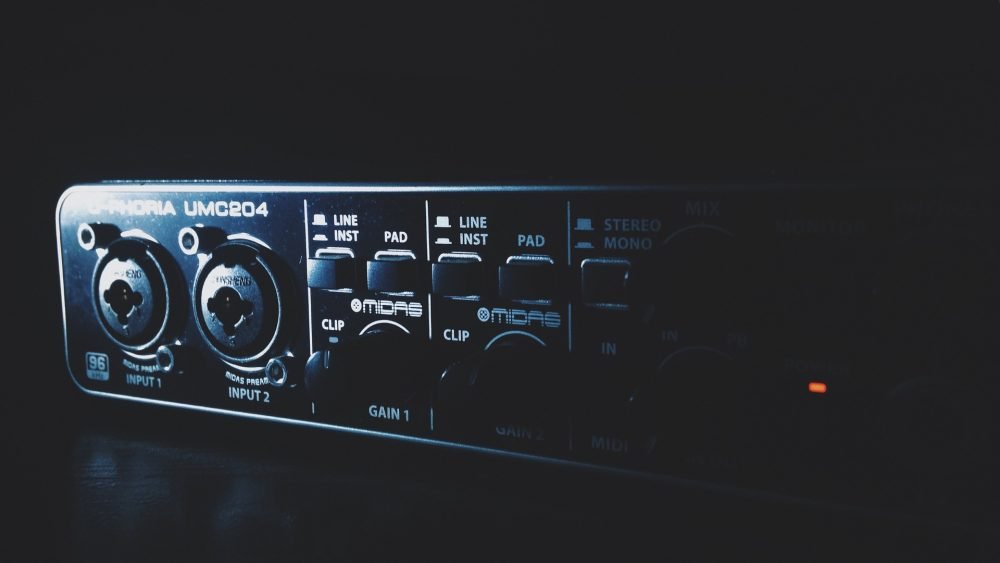
DAW and OS Compatibility
In some cases, an audio interface works best with a DAW made by the same manufacturer. Check its integration with the DAW first, then, the OS. Even though the makers claim it’s Mac-compatible, but it’s best to make sure. Otherwise, you’ll either buy a new audio interface or a new Mac.
Knobs and Meters
Look closely on the layout and how the controls can be accessed from where you’re operating. In addition, you also need to check the knobs, buttons, sliders, and everything that’s onboard – ensure that all your needs are already there.
If you aren’t familiar with all the functionalities you need in an audio interface.
Number of inputs and outputs
Recording multiple instruments at once through an audio interface is great, especially if you’re in a band. Think how your whole PA system is going to look once all the music gears you need is already connected to the interface.
FAQs
How does an audio interface work?
The audio interface is a computer peripheral that enables recording and playback of audio signals. Examples of common audio interfaces include: USB, Firewire, Thunderbolt, PCI-E soundcard interfaces, and built-in laptop soundcards. The purpose of the audio interface is to take information from one or more sources and convert it into an electronic signal that can be fed into your computer processor via a digital input port.
Do I need an audio interface for Mac?
Yes, it’s a good idea to get an audio interface if you want to record with GarageBand on your mac.
Mac has always been a stable platform for music production, but it needed the introduction of GarageBand for Mac 10.0 to make it accessible to everyone ( GarageBand is an included app with all new Macs ). It’s the perfect tool for the musician on a budget.
But you can’t record audio without compatible hardware, which brings us back to this question: Do I need an audio interface for my mac? If you’re interested in recording your arrangements and songs (and slapping them up on soundcloud), then yes.
How do I connect my Mac to the audio interface?
This is the easy part. Most audio interfaces connect to your computer via USB, Firewire or Thunderbolt ports.
Once you have an audio interface installed, just turn it on and open up GarageBand (or Logic Pro). You’ll see a new section in the upper-left corner of the screen: “Audio/MIDI”. From there, you can select your desired input and output devices for recording and playing back music.
Your Mac will treat the soundcard like an external hard drive if you select it as such in GarageBand preferences.
This secondary storage location must be used ONLY when recording with your instrument apps or MIDI controller apps (you don’t want to accidentally move one of your saved songs from its original location in your primary hard drive).
Does M-audio interface work with Mac?
M-audio interface works with Mac, but some users found some issue when using it in Logic Pro X.
One thing to keep in mind is that M-Audio doesn’t make an actual audio interface for the Mac, they just use Windows compatible software in their interfaces and market them as Mac compatible.
You’ll see this same situation with most brands of audio interfaces on the market today (they all work great with Windows, but drivers are limited).
Garageband users won’t have any trouble whatsoever getting up and running with Logic or Ableton Live right out of the box (most DAWs for Windows also work fine if you’re on a PC).
The key is finding an audio interface that’s designed specifically for your DAW of choice.
Does Behringer’s audio interface work with Mac?
Yes, it does. Most users found no issue in using Behringer audio interface with Mac.
As mentioned before, Behringer audio interface is compatible with Mac after installing drivers for it.
But most users didn’t install the driver that came in the box.
They just installed the driver that they use on Windows. They got no issue so far since almost all their audio interfaces are designed for both Windows and Mac. So you don’t have to worry about your compatibility at all. You can go ahead and buy whatever audio interface you like without wondering if it will work or not with Mac. It’s guaranteed to work with any popular DAWs out there (Apple Logic Pro X, GarageBand, Ableton Live etc.).
Editor’s Choice
So now, we’ve come to the point wherein we will give you our recommendations on this roundup.
In fact, we have three products that are competing for the title — Focusrite Scarlett Solo, RME Audio Interface BABYFACEPRO, and Roland STUDIO-CAPTURE (expensive).
Depending on your budget, these audio interfaces are for great grabs. They excelled in both usability and integration with other devices, especially with Mac.
For more connectivity (inputs and outputs), the one that gives you more is the most expensive one. Beginners and intermediate musicians can take advantage of the cheapest and affordable ones.
But, for serious musicians, the best is Focusrite Scarlett Solo. It’s a straightforward audio interface, and it’s perfect for those who want to have their own music recording setup easily.
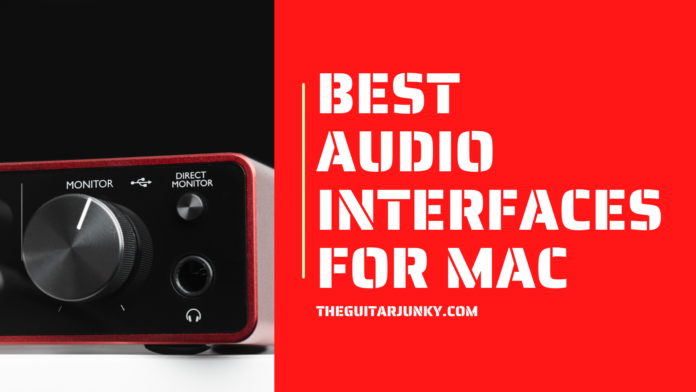


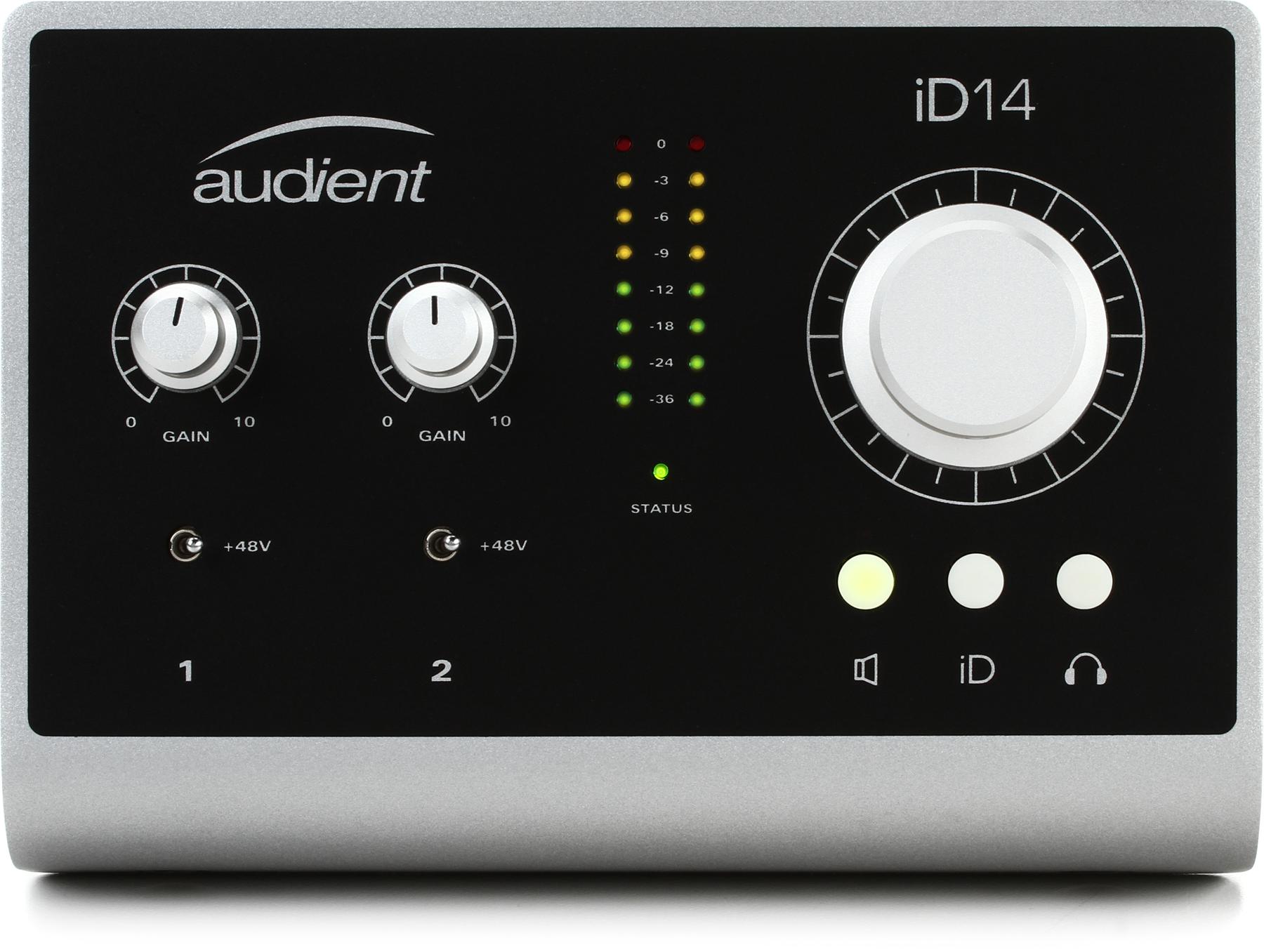

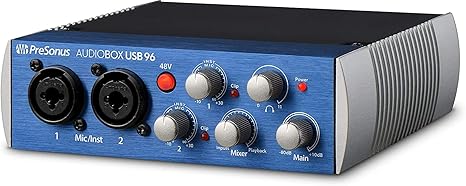




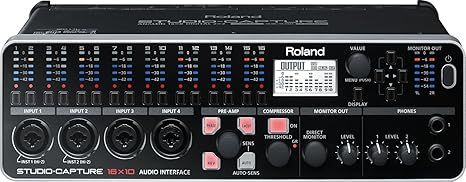

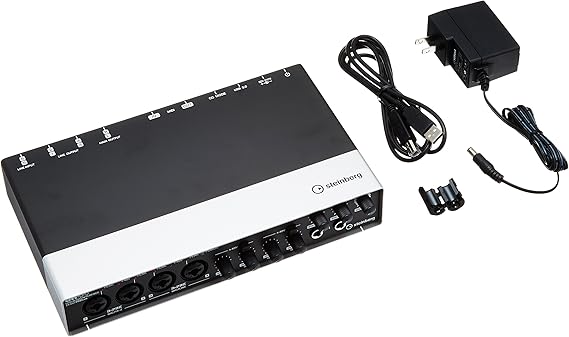

Overall I believe this article does a great job of explaining the pros and cons of the different interfaces on this list. I found the info about the Presonus most appealing I’ve recently purchased the presonus Atom so it’s nice to see my brand of machinery make the list,